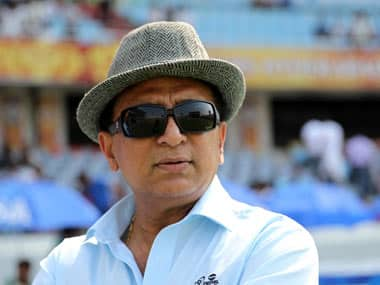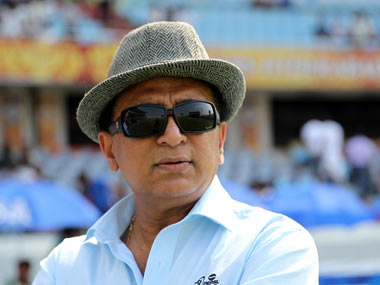Welcome back, Mr. Gavaskar. We have missed you. Sunil Gavaskar’s trenchant critique of the Duncan Fletcher era is just what Indian cricket needs (though Fletcher may disagree). Gavaskar believes it is time Fletcher made way for a younger coach – one more in tune with the demands of the modern game – and he has pulled no punches in saying so. Gavaskar has been increasingly forthright since India travelled to South Africa, whether on screen as a commentator, in his position as a cricket expert for NDTV or in print, as he did with the Fletcher piece. He is simply calling them as he sees them and it is refreshing to watch him do it. [caption id=“attachment_1427211” align=“alignleft” width=“380”]
 Sunil Gavaskar. BCCI[/caption] There are few men or women in world cricket who can match Gavaskar’s achievements and knowledge of the game. He has been there and done that many times over. That’s why an honest and direct Gavaskar is of enormous value to any discussion surrounding Indian cricket. Whether one agrees or disagrees is not the point. What matters is going beyond the BCCI echo chamber and not simply parroting the party line. Over the last couple of months, Gavaskar has not been shy in critcising India’s
failure to win the first Test
in South Africa, pointing out India’s domestic cricket set-up does not reward going for a win, slammed the
team’s work ethic
during the Asia Cup, as was baffled by India’s
refusal to play reserve players
in the Asia Cup game against Afghanistan in a game without consequences for either side. He isn’t couching his criticism in generalities, either. After India named that unchanged side against Afghanistan, Gavaskar did not hold back on live TV. “The only thing that comes to my mind is that there is that worry and there’s probably a fear that if these guys do well, what happens to our favourites in the team. “This is what breeds complacency, guys know, kuch bhi karoon, team main hoon (whatever I do, I’m in the team).” Coming from a man who has 10,000 Test runs and won a World Cup, comments like those are hard to ignore and force discussion, whether the powers-that-be like it or not. It is not all about criticism either. Gavaskar praised India’s fourth-innings batting performance in the first Test in New Zealand, calling it “one of the better run chases by India on foreign soil that I have seen”. India lost that game but coming from a man who is renowned for his fourth-innings heroics, it was not idle praise and would have done much for the players’ morale at a difficult time for the team. Nor is he just running with the wind. Amid the MS Dhoni captaincy debate, he came to the beleaguered Indian captain’s defense after the New Zealand Test series. “The thing is, he [Dhoni] is winning handsomely in India and therefore it’s very difficult to say to him, okay thank you, you won 3-0, all three Test matches in India but sorry your overseas record is not good so we are going to change the captain. So that kind of thing doesn’t work." At the same time, Gavaskar admitted he would have been disappointed not to win the second Test from a winning position had he been the captain. Then there is the insight Gavaskar can offer during commentary. During the first Test against New Zealand, he pointed out Dhoni likes to take the ball at his knees while keeping. As a result, he stands further back than some other wicketkeepers might, forcing the slip fielders to move back a couple of feet too. That’s why edges were coming to the fielders at ankle height or not carrying at all, contributing to India’s troubles in the slips. It is not something the casual viewer would have spotted and added a deeper layer to watching the game than one would get from a simple description of what is happening (admittedly, it is also what he is paid to do). The BCCI does not like discussion and believes in controlling the message like the former Kremlin. That’s why selectors, coaches and players are routinely gagged. The board’s influence even extends to the commentary box. Danny Morrison, the former New Zealand fast bowlers, reportedly lost his contract because he mentioned Virat Kohli has a future India captain. Ravi Shastri’s claim that the BCCI cannot be questioned is emblematic of the mindset that pervades the Indian system. In this environment, a plainspoken Gavaskar is a Godsend. He provides a perspective on Indian cricket that would be impossible to get elsewhere and his record and stature make it all but impossible to discredit his opinion. Now if only the others would follow his example. Allowing a thousand opinions to bloom is a much better cricketing world that one with the single, solitary voice of the BCCI.
Sunil Gavaskar. BCCI[/caption] There are few men or women in world cricket who can match Gavaskar’s achievements and knowledge of the game. He has been there and done that many times over. That’s why an honest and direct Gavaskar is of enormous value to any discussion surrounding Indian cricket. Whether one agrees or disagrees is not the point. What matters is going beyond the BCCI echo chamber and not simply parroting the party line. Over the last couple of months, Gavaskar has not been shy in critcising India’s
failure to win the first Test
in South Africa, pointing out India’s domestic cricket set-up does not reward going for a win, slammed the
team’s work ethic
during the Asia Cup, as was baffled by India’s
refusal to play reserve players
in the Asia Cup game against Afghanistan in a game without consequences for either side. He isn’t couching his criticism in generalities, either. After India named that unchanged side against Afghanistan, Gavaskar did not hold back on live TV. “The only thing that comes to my mind is that there is that worry and there’s probably a fear that if these guys do well, what happens to our favourites in the team. “This is what breeds complacency, guys know, kuch bhi karoon, team main hoon (whatever I do, I’m in the team).” Coming from a man who has 10,000 Test runs and won a World Cup, comments like those are hard to ignore and force discussion, whether the powers-that-be like it or not. It is not all about criticism either. Gavaskar praised India’s fourth-innings batting performance in the first Test in New Zealand, calling it “one of the better run chases by India on foreign soil that I have seen”. India lost that game but coming from a man who is renowned for his fourth-innings heroics, it was not idle praise and would have done much for the players’ morale at a difficult time for the team. Nor is he just running with the wind. Amid the MS Dhoni captaincy debate, he came to the beleaguered Indian captain’s defense after the New Zealand Test series. “The thing is, he [Dhoni] is winning handsomely in India and therefore it’s very difficult to say to him, okay thank you, you won 3-0, all three Test matches in India but sorry your overseas record is not good so we are going to change the captain. So that kind of thing doesn’t work." At the same time, Gavaskar admitted he would have been disappointed not to win the second Test from a winning position had he been the captain. Then there is the insight Gavaskar can offer during commentary. During the first Test against New Zealand, he pointed out Dhoni likes to take the ball at his knees while keeping. As a result, he stands further back than some other wicketkeepers might, forcing the slip fielders to move back a couple of feet too. That’s why edges were coming to the fielders at ankle height or not carrying at all, contributing to India’s troubles in the slips. It is not something the casual viewer would have spotted and added a deeper layer to watching the game than one would get from a simple description of what is happening (admittedly, it is also what he is paid to do). The BCCI does not like discussion and believes in controlling the message like the former Kremlin. That’s why selectors, coaches and players are routinely gagged. The board’s influence even extends to the commentary box. Danny Morrison, the former New Zealand fast bowlers, reportedly lost his contract because he mentioned Virat Kohli has a future India captain. Ravi Shastri’s claim that the BCCI cannot be questioned is emblematic of the mindset that pervades the Indian system. In this environment, a plainspoken Gavaskar is a Godsend. He provides a perspective on Indian cricket that would be impossible to get elsewhere and his record and stature make it all but impossible to discredit his opinion. Now if only the others would follow his example. Allowing a thousand opinions to bloom is a much better cricketing world that one with the single, solitary voice of the BCCI.
Tariq Engineer is a sports tragic who willingly forgoes sleep for the pleasure of watching live events around the globe on television. His dream is to attend all four tennis Grand Slams and all four golf Grand Slams in the same year, though he is prepared to settle for Wimbledon and the Masters.
)